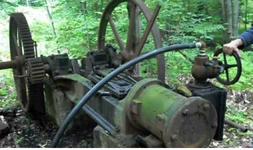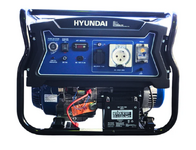LondonNight
Mechanical
- Nov 21, 2024
- 12
Let’s take a pragmatic approach to this situation. I want to describe things as they are without sugarcoating, to better convey the challenge I'm facing and get advice.
I graduated in mechanical engineering and have been passionate about technical projects since childhood. DIY projects were my thing growing up, and I’ve always enjoyed researching engineering topics, even those I might never use practically, like railway systems, nuclear power plants, or steam power plants.
One of my proudest achievements is a project I worked on with my cousin over the course of four years during summer breaks. I was in university, and he was in high school at the time. Together, we built a fully functional railway speeder. I was responsible for the engineering aspects, such as designing load-bearing components, electric circuits, and mechanical systems. My cousin focused on the creative side: naming the project, choosing the color scheme, and designing the interior layout. He also helped me a ton in drilling holes, cutting material, polishing or sanding, basically he was my right hand when it came to building the physical object itself.
The project turned out great and even became my bachelor’s thesis, for which I wrote a 100-page paper. It was a big success and something I’m incredibly proud of.
Fast forward to now. My cousin is in his first year of university, and he wants to start working on his own bachelor’s thesis project—an ambitious one. He’s set on building a 10 kW steam-powered electric generator, not a small mock model but a full-scale working system. His design includes a monotube steam generator, an uniflow motor driving an electric generator, and its gonna be a closed steam system with no lubrication—an incredibly complex undertaking. He has four years to complete it.
Here’s where things get tricky. Over the years, I’ve done extensive research into steam power systems as a hobby and have a pretty solid understanding of how such a system could/should be built. My cousin, however, is still in the early stages of his engineering journey. His experience is limited to the railway speeder project we worked on and his high school robotics group, where he built small robots for competitions. From what I’ve observed, his approach is still very trial-and-error, which is fine for learning but not ideal for tackling a complex project like this.
Naturally, he’s asked me to help him design and build the generator. I want to help, but I don’t want to overshadow his learning process. This is his project, and I want it to stay that way. If I take over and provide all the answers, he won’t develop the skills he needs as an engineer. On the other hand, this is an extremely challenging project, and without guidance, he might not succeed.
The complexity of the project leaves little room for trial-and-error. Mistakes in the early design stages could lead to significant setbacks, and there’s simply not enough time to start over repeatedly. I’ve already envisioned how the system should work, but I don’t want to hand him a blueprint and say, “Here, build this.” I want him to do the research, learn, and come to his own conclusions—just as I did when I first started exploring steam power systems - precisely so that he grows his skills as an engineer.
So, here’s my dilemma: How do I strike the right balance? I want to help him succeed with the project, but I also want him to grow as an engineer. I don’t want to take over, but if I don’t help enough, the project might likely not be built in the available time frame, and that will be considered a failure to build it for its purpose (to serve as a bachelor thesis project), and will demoralize him incredibly, not to mention that he won't have a working project which is required to finish the bachelors degree.
What’s the best approach to take in a situation like this? How can I provide the support he needs without undermining his opportunity to learn and take ownership of the project? If you’ve been in a similar situation or have advice on mentoring someone through a complex engineering project, I’d love to hear your thoughts.
I graduated in mechanical engineering and have been passionate about technical projects since childhood. DIY projects were my thing growing up, and I’ve always enjoyed researching engineering topics, even those I might never use practically, like railway systems, nuclear power plants, or steam power plants.
One of my proudest achievements is a project I worked on with my cousin over the course of four years during summer breaks. I was in university, and he was in high school at the time. Together, we built a fully functional railway speeder. I was responsible for the engineering aspects, such as designing load-bearing components, electric circuits, and mechanical systems. My cousin focused on the creative side: naming the project, choosing the color scheme, and designing the interior layout. He also helped me a ton in drilling holes, cutting material, polishing or sanding, basically he was my right hand when it came to building the physical object itself.
The project turned out great and even became my bachelor’s thesis, for which I wrote a 100-page paper. It was a big success and something I’m incredibly proud of.
Fast forward to now. My cousin is in his first year of university, and he wants to start working on his own bachelor’s thesis project—an ambitious one. He’s set on building a 10 kW steam-powered electric generator, not a small mock model but a full-scale working system. His design includes a monotube steam generator, an uniflow motor driving an electric generator, and its gonna be a closed steam system with no lubrication—an incredibly complex undertaking. He has four years to complete it.
Here’s where things get tricky. Over the years, I’ve done extensive research into steam power systems as a hobby and have a pretty solid understanding of how such a system could/should be built. My cousin, however, is still in the early stages of his engineering journey. His experience is limited to the railway speeder project we worked on and his high school robotics group, where he built small robots for competitions. From what I’ve observed, his approach is still very trial-and-error, which is fine for learning but not ideal for tackling a complex project like this.
Naturally, he’s asked me to help him design and build the generator. I want to help, but I don’t want to overshadow his learning process. This is his project, and I want it to stay that way. If I take over and provide all the answers, he won’t develop the skills he needs as an engineer. On the other hand, this is an extremely challenging project, and without guidance, he might not succeed.
The complexity of the project leaves little room for trial-and-error. Mistakes in the early design stages could lead to significant setbacks, and there’s simply not enough time to start over repeatedly. I’ve already envisioned how the system should work, but I don’t want to hand him a blueprint and say, “Here, build this.” I want him to do the research, learn, and come to his own conclusions—just as I did when I first started exploring steam power systems - precisely so that he grows his skills as an engineer.
So, here’s my dilemma: How do I strike the right balance? I want to help him succeed with the project, but I also want him to grow as an engineer. I don’t want to take over, but if I don’t help enough, the project might likely not be built in the available time frame, and that will be considered a failure to build it for its purpose (to serve as a bachelor thesis project), and will demoralize him incredibly, not to mention that he won't have a working project which is required to finish the bachelors degree.
What’s the best approach to take in a situation like this? How can I provide the support he needs without undermining his opportunity to learn and take ownership of the project? If you’ve been in a similar situation or have advice on mentoring someone through a complex engineering project, I’d love to hear your thoughts.


